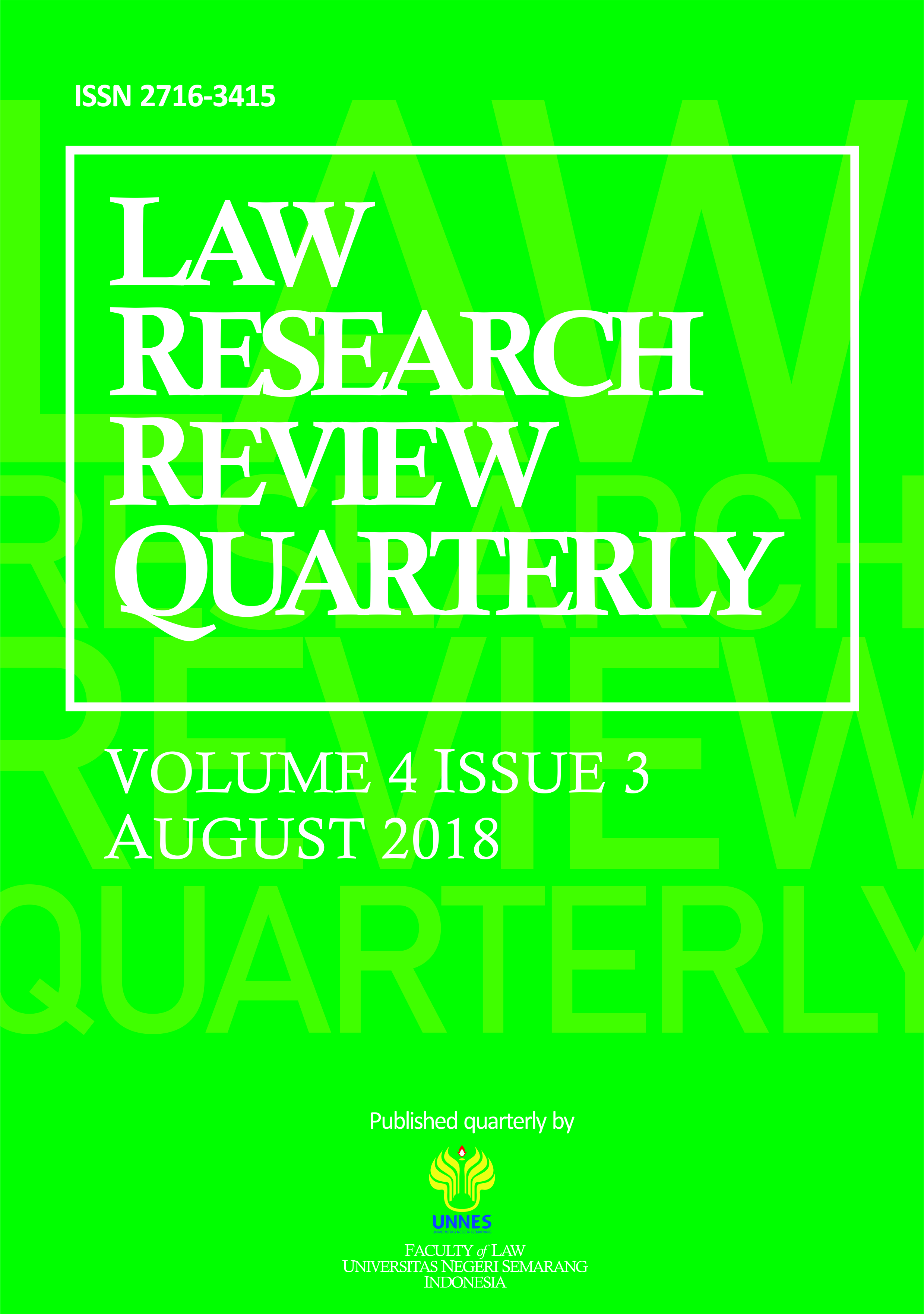Reorientation of Gender Politics in the Patriarchal System of Society
Main Article Content
Abstract
The democratic system of government implies that there are equal rights in general elections between men and women. The concept of democracy which should originate from western thought faces challenges and obstacles to be applied in Indonesia, especially in patriarchal systems of society that focus on the role of men. The reality of a patriarchal system of society is to position women as a party below men, so women will find it difficult to develop themselves in a democratic political constellation with a one man one vote system. This study uses a qualitative approach with the case study method of simultaneous regional head elections in West Java, the urgency of conducting research in West Java because it has a patriarchal community system, and the election of the governor's head in West Java in 2018 there are no female candidates. The results of the research focus on the formation of an effective and efficient political education model to reorient leadership in West Java. The results of this study are aimed at ensuring that women in West Java have confidence in following the democratic political constellation.
Article Details
All writings published in this journal are personal views of the authors and do not represent the views of this journal and the author's affiliated institutions. Author(s) are retain the copyrights of the Article. However, before publishing, it is required to obtain written confirmation from Author(s) in order to ensure the originality (Author Statement of Originality). The statement is to be signed by at least one of the authors who have obtained the assent of the co-author(s) where applicable.This work licensed under a Creative Commons Attribution-ShareAlike 4.0 International (CC BY-SA 4.0)
References
Mukarom, Z. 2011. Strategi Komunikasi Politik Perempuan di Lembaga Legislatif. Jurnal Ilmu Dakwah Vol. 5 No. 2 hlm. 599-625
Nurcahyo, A. (2016). Relevansi Budaya Patriaki dengan Partisipasi Politik dan Keterwakilan Perempuan di Parlemen. Jurnal Agastya Vol 6 No 1, hlm. 25-34.
Omara, A. (2004). Perempuan, Budaya Patriarki dan Representasi. Jurnal Mimbar Hukum. hlm. 149-165.
Pranowo, Y. (2013). Identitas Perempuan dalam Budaya Patriarkis: Sebuah Kajian tentang Feminisme Eksistensialis Nawal El Sa'adawi dalam Novel “Perempuan Di Titik Nolâ€. Jurnal Melintas, 29(1), hlm.56-78
Rahmaturrizqi, Choirun Nisa, dan Fathul Lubabin Nuqul. (2007). Gender dan Perilaku Memilih: Sebuah Kajian Psikologi Politik. Jurnal Psikologi: Teori & Terapan, Vol. 3, No. 1, hlm. 49-57.
Wahid, U. (2012). Aliansi Jaringan dalam Proses Komunikasi Politik Anggota Dewan Perwakilan Rakyat Daerah Perempuan. Jurnal Ilmu Komunikasi, 10(1), hlm 69-84.
Wismantara, P.P. (2009). Politik Ruang Gender pada Permukiman Taneyan lanjhang Sumenep. EGALITA, Jurnal Kesetaraan dan Keadilan Gender, Vol. 4, No. 2, , hlm. 185-198.
